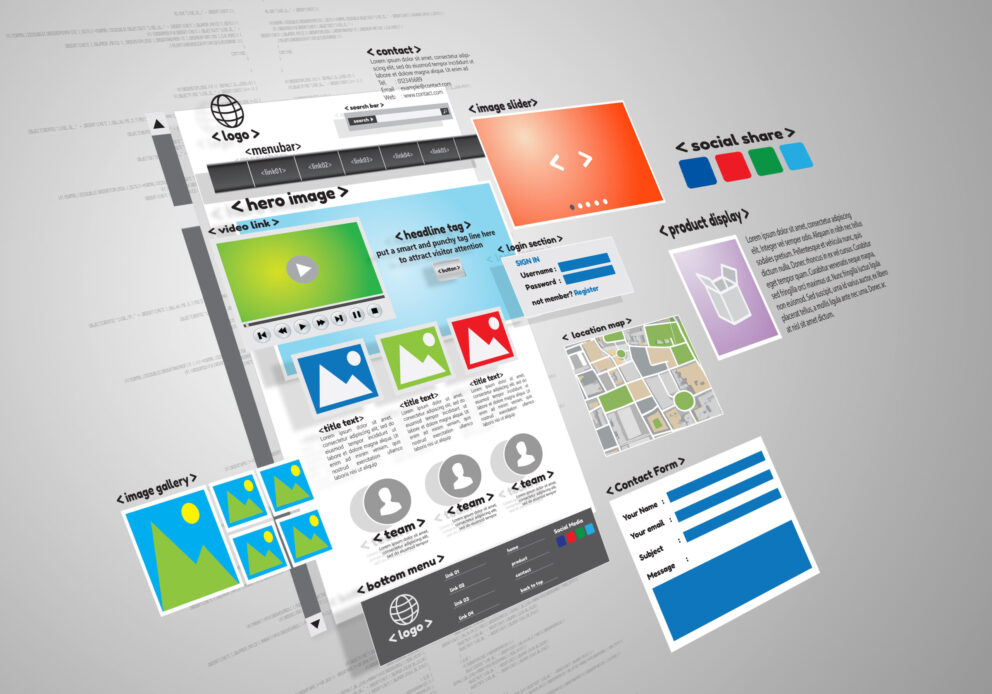SEO Basics for Non-SEO Experts

Summary
You don’t need to be an SEO expert to implement a few easy tricks that will make a big impact in your organization.
By Lisa Heay, Marketing Planning Manager at Heinz Marketing
Search engine optimization (SEO) has always been a daunting subject in my mind—there is so much to it. And as a chronic overthinker, I can make any task seem insurmountable. However, I recently pushed myself to move past that barrier and take an SEO course—MarketingProf’s (Non-Techie) Marketer’s Guide to SEO to be specific, and it was an eye-opener. Yes, SEO is a huge topic, and there is a lot to know. But I did learn some simple tricks that should make an impact on our SEO.
What is SEO, and why does it matter?
SEO is the process of improving the quality and quantity of website traffic to a website or a web page from search engines. Increase your webpages’ search ranking (where you land on the search results page) and therefore increase traffic to your site, bringing more prospects, more conversions and (hopefully), increased revenue.
The best part is that SEO is organic. It’s not paid—pay-per-click (PPC) advertising is a different tactic. SEO is an equalizer—you don’t need a big budget to win—just an effective content marketing strategy, but that’s a topic for another post.
Not only does SEO bring organic traffic, it’s quality. When someone searches for something, they are showing intent. There is real interest if someone is spending time searching the internet. If your web page doesnt show up on page one of Google, you’re missing out on an exponential amount of traffic.
Here’s some Top SEO statistics from Ahrefs’ blog:
- 68% of online experiences begin with a search engine. (BrightEdge)
- 90.63% of pages get no organic search traffic from Google. (Ahrefs)
You don’t have to be an expert to optimize your search rankings. Here are some basic takeaways from the course…
Links are important.
Rank is fed by off-site links to your page, and on-page keywords. Links from other websites help build authority.
Good links…
- Come from a site with high domain authority (meaning its a site with relevance for a specific subject area or industry). This builds credibility!
- Come from a page with few outgoing links. If a page links to your site but has 100 other links on it, Google doesn’t see that as valuable as a page with one or two links that direct to your page.
- Point to a deeper, more specific interior page on your website. Homepages are broad and cover more than one topic, and there are likely already a lot of external links that point to your homepage. Send that traffic deeper.
Keyphrases are, well, key.
Keyphrases are the specific words people use to search. Think about your most successful Google searches. Maybe you’re researching family pets. “Dog” is going to get you a wide range of results—likely none of which are really what you’re looking for. “Best dog breed for small children” will give you much more relevant results.
Choosing the right keyphrases is crucial. An ideal keyphrase has a high search volume, low competition, and it’s relevant to your business. Do your research to understand which keyphrases you should be targeting in your SEO efforts.
To research, start by typing in the phrase you want to target and see if it’s suggested from Google search. If it comes up as a suggestion, it’s a good idea to target that keyphrase. Keywordtool.io also uses the Google Suggest feature to generate keywords.
Keep in mind that the popularity of a keyphrase will go up and down over time. Use trends.google.com to determine the popularity over a period of time and by geography.
You need a page that meets the demand.
Do you have a relevant page that will address those search inquiries you care about most? If you do, Google needs to know about it. You need to include your keyphrase on the page, and there are better places to do that than others.
- Use the phrase at the beginning of the title tag. This appears above the address bar in your browser and in the blue link text of the search result.
- Use the phrase in the <h1> page header and the meta description, which will show up in the search result snippet. If you don’t manage the meta description, Google will create one for you from the text it reads—often resulting in incomplete or incoherent sentences.
- Use the phrase in the body text on your webpage. It should be used 2-4 times for every 500 words of copy.
- URLs, alt text, file names, and meta keywords are less visible places for keyphrases.
- Images also do not help. Google can’t read what your image says.
Know where you stand against the competition.
You could have an amazing, informative page about red plastic widgets, but if there are 10 other quality pages about red plastic widgets, you still may find yourself on Google’s doomed search results page two. According to a study from Backlinko, only 0.78% of Google searchers click on results from the 2nd page. Less than 1%! And position on the page matters, too—the #1 organic result is 10x more likely to receive a click compared to a page in #10 spot.
It is crucial to assess your competition. Google your phrase. Are there a lot of ads at the top of the page? Are there big brands or famous sites showing up in the list? Some keyphrases may just be out of your league.
And that’s ok—it just means you need to get more specific to get at those phrases that you can really excel at.
Keep in mind that short, generic keyphrases are going to be competitive. The more words in your phrase and more specific you can be, the better chance you’ll have of ranking for your keyphrase. You need to have the best page on the internet for that specific phrase you’re targeting.
Get some help from your friends.
Authority (links) plus Relevance (keywords) = Rank. And links come from influencers and content. Build relationships with content creators like bloggers, journalists, podcasters, event producers, or researchers to create links and therefore drive SEO benefits for your pages.
If your BFF isn’t an influencer in your industry (wouldn’t that be nice?), how do you find someone who is?
Onalytica, BuzzSumo and Traackr are all influencer marketing platforms that you could utilize to connect and collaborate with influencers.
You can also search for free in a social media tool like Followerwonk. Type in your topic + “blogger” or “writer” or “author” to find people who specialize in your particular topic area. Or search by industries and titles in LinkedIn.
Once you have your influencers identified, what next? Send them a cold email and tell them to include a link to your latest and greatest post?
No. You need to cultivate the relationship—it’s a give and take. Start by liking or commenting on their content. Share their content and help amplify their voice. If you do that, they’ll be more likely to help you out in the future.
Learn More
This just scratches the surface. I highly encourage you to spend a few minutes learning SEO basics. Here are some helpful resources to get you started:
- MarketingProfs – The (Non-Techie) Marketer’s Guide to SEO
- LinkedIn Learning – SEO Foundations
- Skillshare – SEO Basics for Non-SEOs
- The Beginner’s Guide to SEO from Moz
- SEO Basics: Beginner’s Guide to SEO Success from Ahrefs’ blog
- Search Engine Optimization (SEO) Starter Guide from Google
- Are You Getting These 21 SEO Basics Right? (How To Do SEO if You Are a Beginner) from SEMRush
- Important SEO Best Practices You Should Know
- Free SEO Tools from Moz
Don’t let SEO overwhelm you like I did. Have you heard of the 80/20 rule? Do the 20% most impactful steps to get you 80% of the way there. You don’t need to be an SEO expert to implement a few easy tricks that will make a big impact in your organization. If you spend the time to make the right pages great, you can make a huge impact driving traffic to your website.





